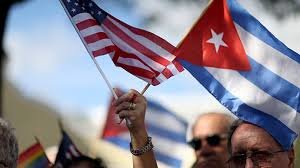Opening the meeting called "Dialogue on Cuba: the role of the European Union and Spain," Jose Luis Rodriguez Zapatero, former President of Spain, considered fair, necessary and appropriate ending of that policy. As President Barack Obama said, the United States should be recognized and appreciated in the world, not only for its great military power and conquests, but also for its great values and the ideas of the founding fathers, Zapatero said.
He also recognized the Cuba’s support to end the violence in his country, marking today four years since the Basque separatist organization, ETA, abandoned its armed actions. “Terrorism came to an end four years ago, good time to remember the wisdom that the United States removed Cuba from the list of countries supporting terrorism. Cuba helped my government, Spain, to make true the end of violence,” he stressed.
Cuban ambassador to Spain Eugenio Martinez, for his part, said that the new stage confirmed that Cuba and the United States can find a modus vivendi based on respect to the sovereign equality and international law. “We know that President Obama has taken steps in the right direction and has sufficient prerogatives to give others who can be released from the most extensive system of territorial sanctions ever applied against a people,” the diplomat said.
He also added that Cuba "will never apologize for defending our sin of being a free and independent people as it is and will develop us as we want." Speaking at the opening of the meeting organized by the Institute for the Cultural Diplomacy, presided over by Zapatero, Kris Urs, the U.S. attaché in Washington’s embassy, also defended the need to end the blockade, for which his president already addressed the Congress.
sus/iff/rc/ml
PL-17/MNA

























Your Comment